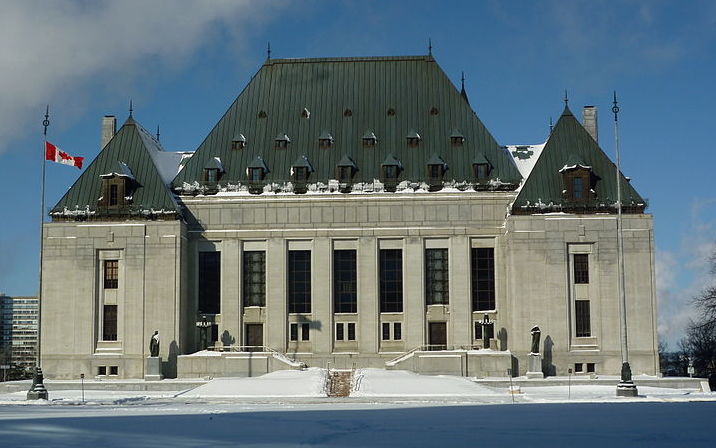Like this article? rabble is reader-supported journalism. Chip in to keep stories like these coming.
Here’s some serious business that’s in a muddle.
The Supreme Court decreed last February that assisted suicide can be allowed under the Charter of Rights and gave the government a year to pass a law conforming to this ruling. The Harper government dragged its feet and the election intervened. The Supreme Court, doing the issue no favours, has given the new government a measly four extra months.
Here’s the picture. A significant shift in Canadian society is taking place. It is about to become legal for one person to take another’s life, which has been deemed murder until now. A law to govern how this works must be passed by June 6. To do this, a committee needs to draft the legislation by Feb. 26, which is pathetically short notice.
The legal road started with the high-profile Sue Rodriguez case some 20 years ago. She was the B.C. woman suffering from terminal ALS who applied to the Supreme Court to be allowed to die with a doctor’s help. The court said no then, but after a winding road of appeals, it reversed itself.
The Rodriguez case was an obvious one of extreme suffering with no hope. Alas, pinning a law down to just such cases is a nightmare. The court says the law should apply to a “competent adult” in response to a “grievous and irremedial medical condition.” This is fuzzy stuff. What is grievous and irremedial, and who says that it is? Should such cases be “terminal”? — the court doesn’t say.
In Belgium and Holland, where such laws have existed for over a decade, there has already been some serious drift from the narrow intent of the law. In Belgium, there was a high-profile case of 45-year-old twins who were deaf and going blind, but neither terminally ill nor in pain, who applied to be killed, and were.
In Holland, the narrow definition has “become a general response to a number of chronic ailments like, for instance, anorexia,” according to a Toronto bioethicist who was an expert witness in the Supreme Court case.
This is obviously a slippery slope. The questions of what is a competent adult, and what constitutes consent, are even more fraught. Could we convince the old auntie, for instance, to check out early while the inheritance is still intact? What about the mentally challenged, the poor, those who don’t speak the language, etc.?
On the more official level, once the TV cameras are off and the societal and budgetary stress levels are high, would this be a way of reducing that troublesome backlog in the old folks’ homes? Far out? Remember that until the 1930s, eugenics — the practice of sterilizing the “unfit,” as defined by the ruling powers, to keep them from reproducing and thereby defiling the racial stock — was widely practised throughout the Western world until the Nazis took it to extremes.
Still, assisted suicide is the law of the land, and in some cases no doubt justified (especially if we consider that many people in extremis are kept artificially alive, and suffering unnecessarily, by modern medicine to begin with).
The strategy of those who wish to mitigate such a law — the Canadian Medical Association, most churches, disabled groups whose members fear they could ultimately be under pressure to self-destruct, and three-quarters of some 15,000 Canadians who answered a sophisticated online questionnaire by the initial review committee set up by the Harper government — is that anyone applying for assisted suicide should first be emphatically offered palliative care or home care as an alternative.
If all this puts palliative care — a long-sought and long-neglected element of health care — on the agenda, then maybe some good can emerge. Still, palliative care raises another taboo subject — more money to be spent on health care. Money, and the weak voices of the clientele — the dying — likely being the reason why the issue has never been addressed.
And here’s another complication: of the countries that have legalized assisted suicide, Canada is the only one with split jurisdiction. The federal government writes the Criminal Code and the provinces control health care. It’s on that basis that Quebec passed its own assisted suicide law — on grounds that it’s a health matter (one person in Quebec City was apparently euthanized this week).
However, mainly to deal with the Quebec situation, the Supreme Court decreed that until the due date in June, the Criminal Code is still in effect — it’s still murder — but you can apply for an exemption to your provincial Supreme Court.
Exemption to the laws governing murder might seem weird and alarming, but I suspect that this is going to be a permanent situation everywhere, with the federal government unable to draft a law — much as with abortion.
Besides, even if it does, a federal justice department lawyer told the committee studying the matter it’s likely that “whatever Parliament comes up with will be subject to court challenge.” Hang on for a rough ride.
Ralph Surette is a freelance journalist in Yarmouth County. This column was first published in the Chronicle Herald.
Photo: Themightyquill/Wikimedia Commons
Like this article? rabble is reader-supported journalism. Chip in to keep stories like these coming.



